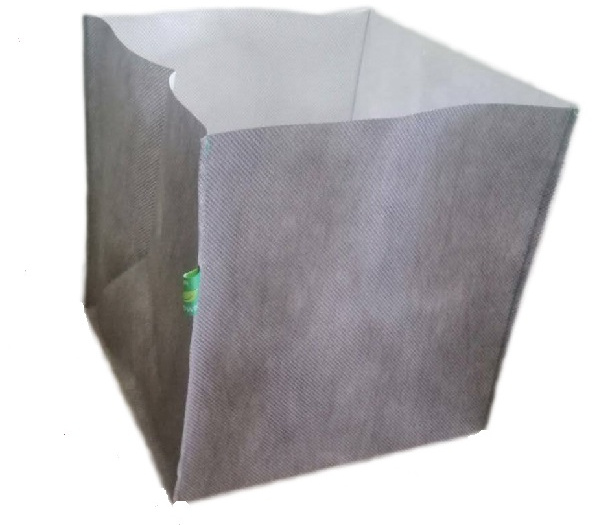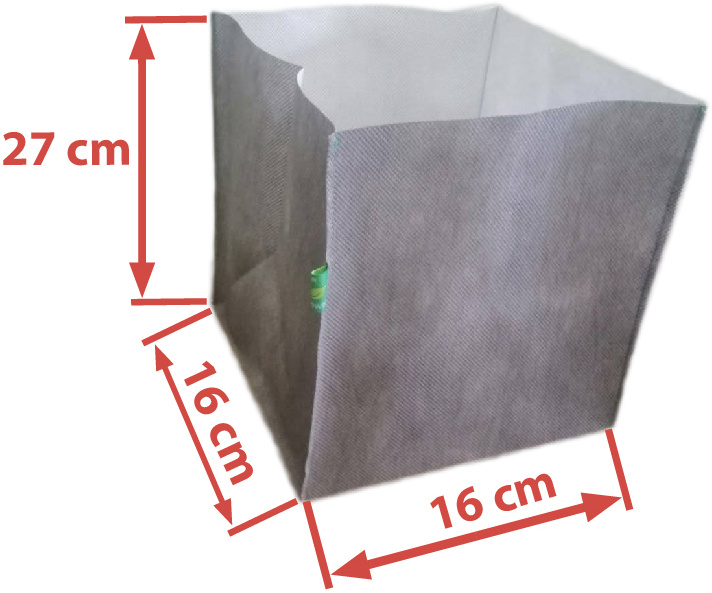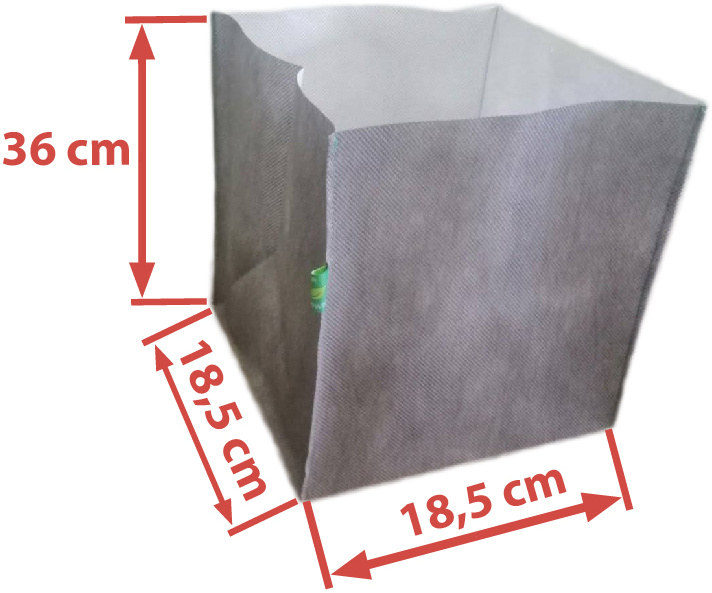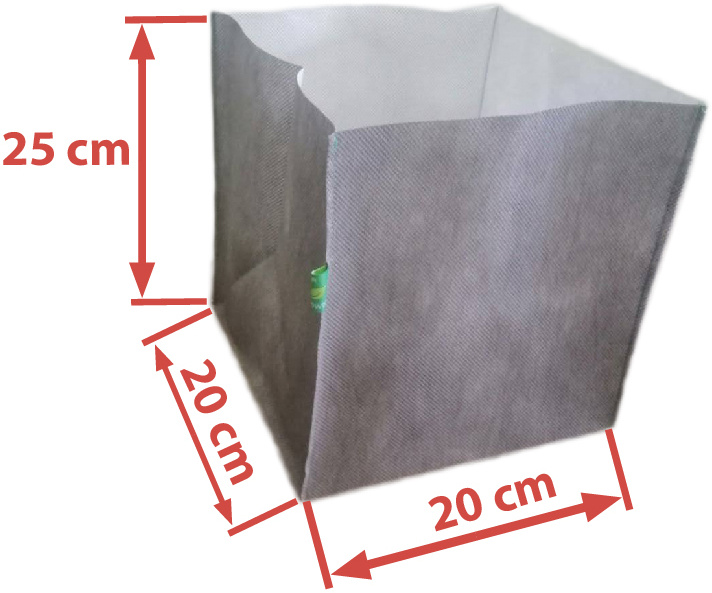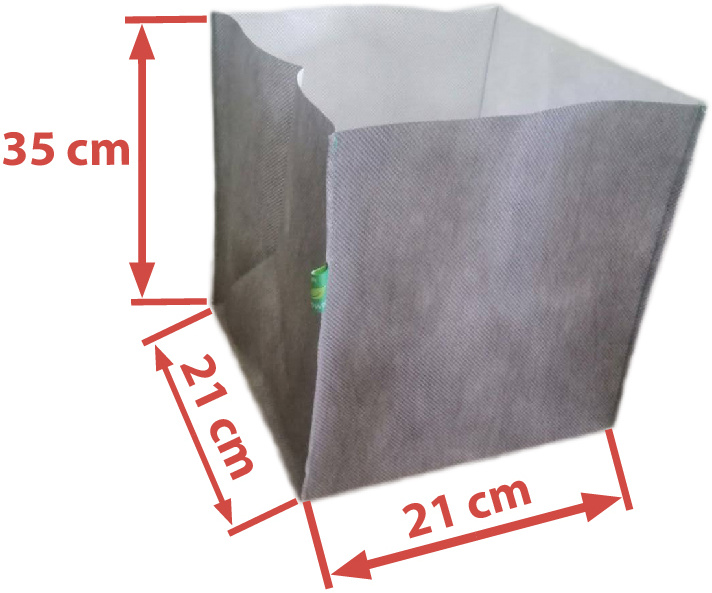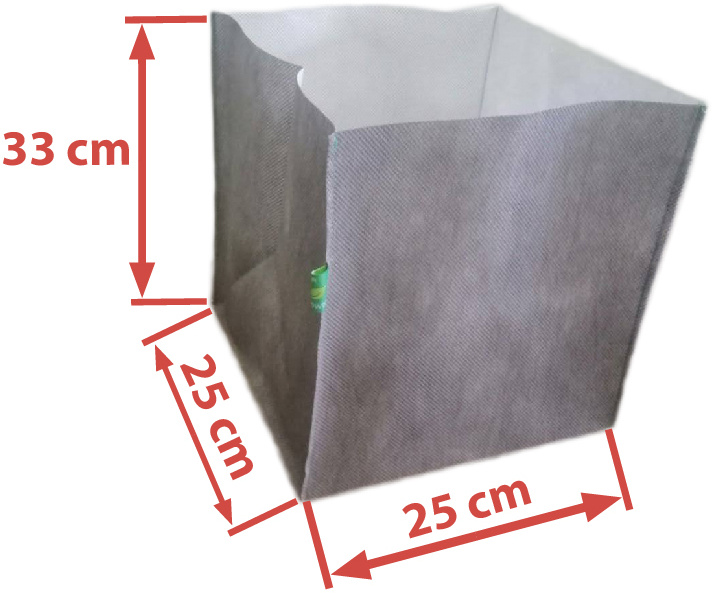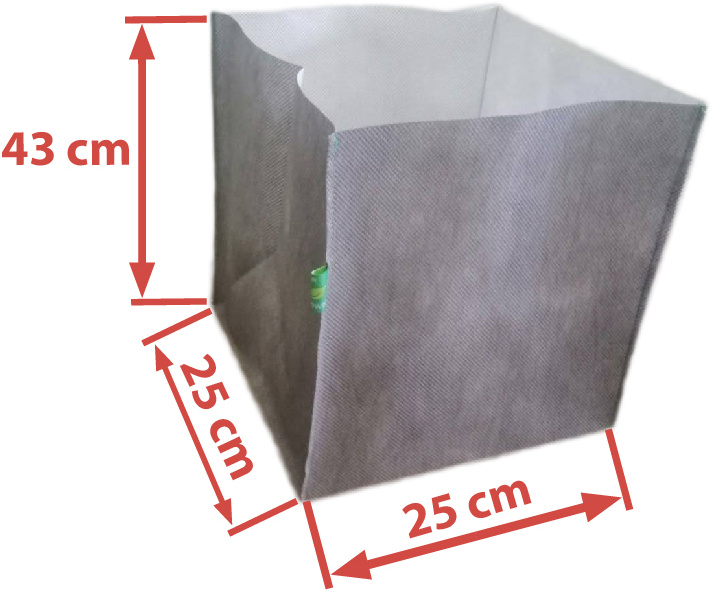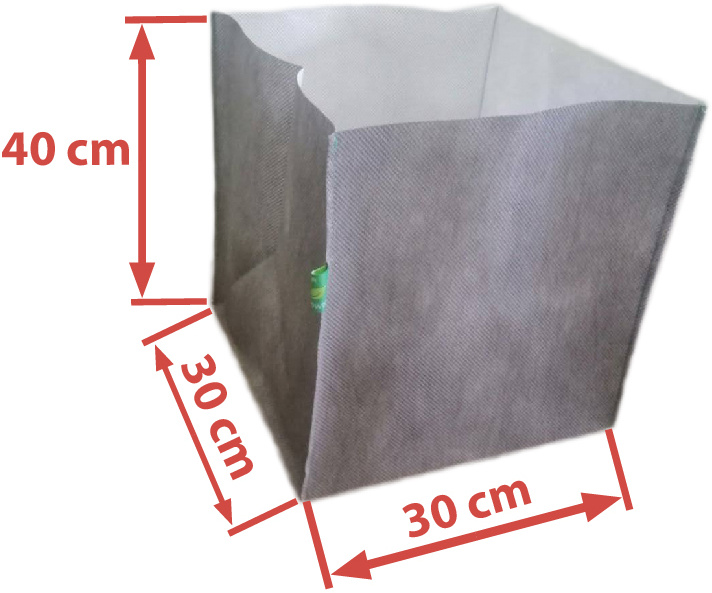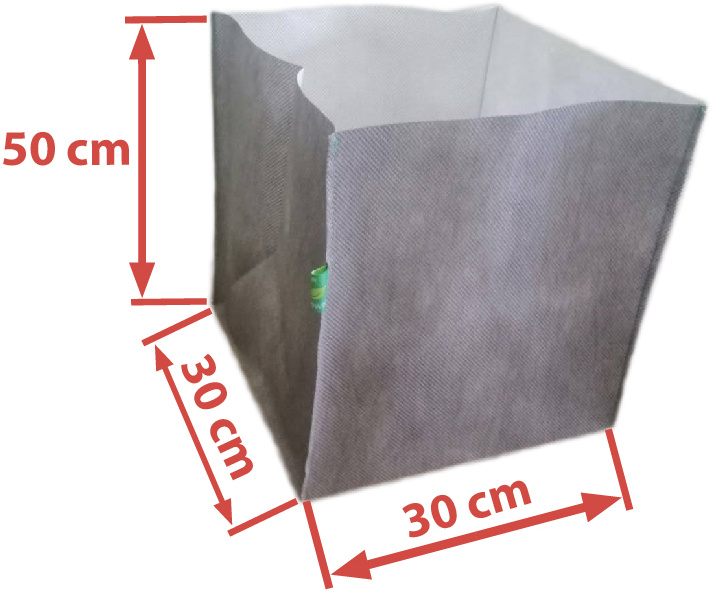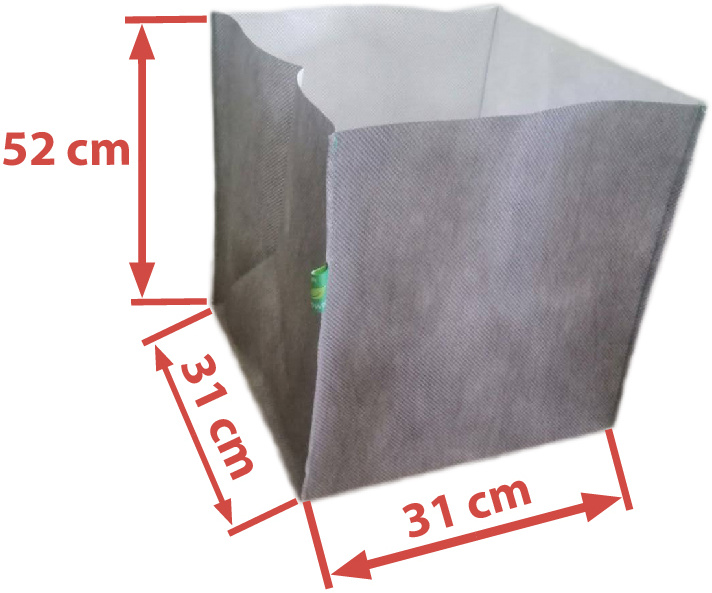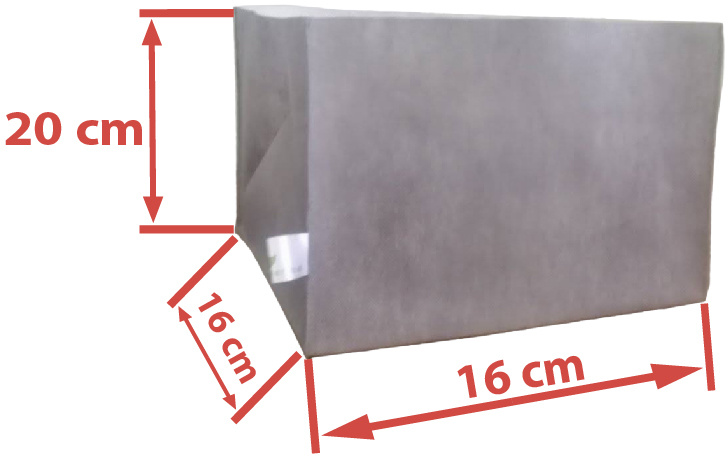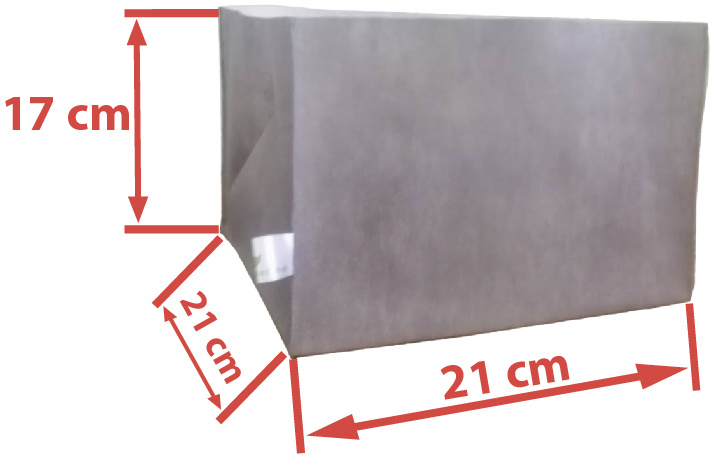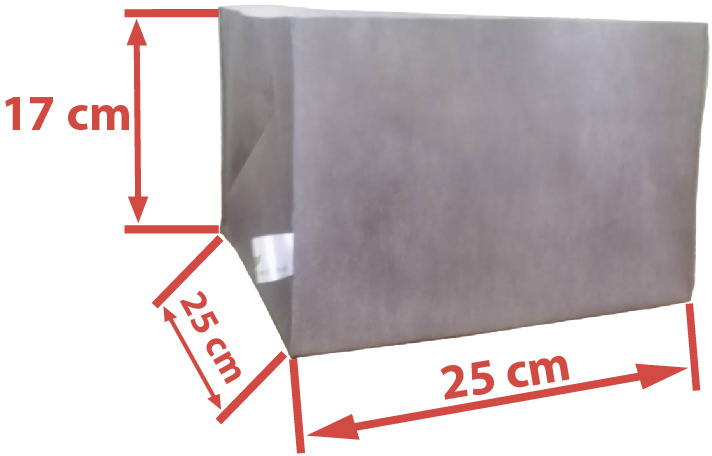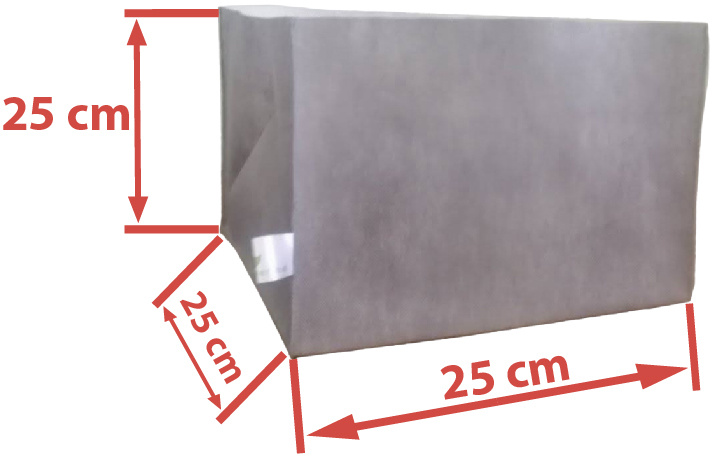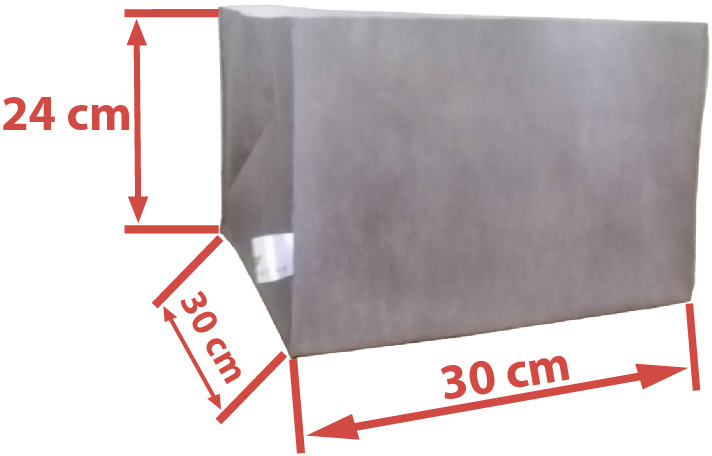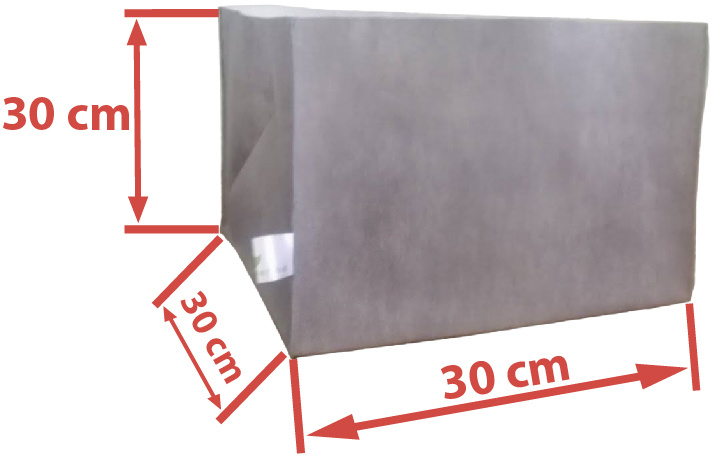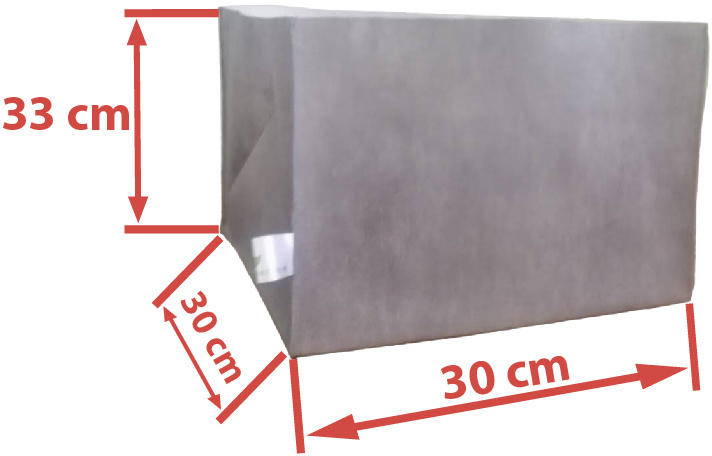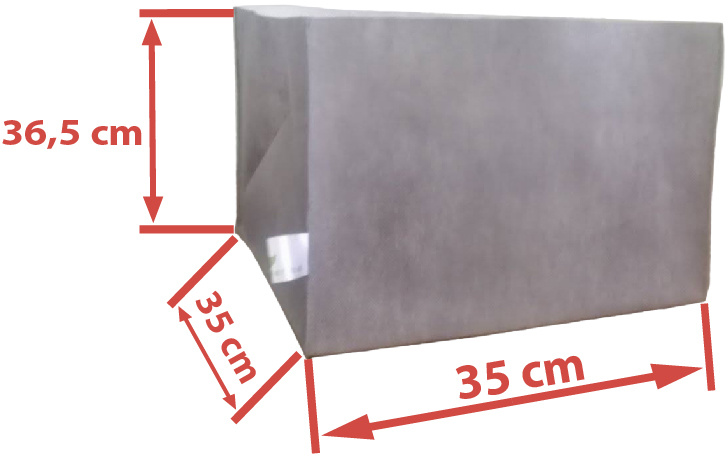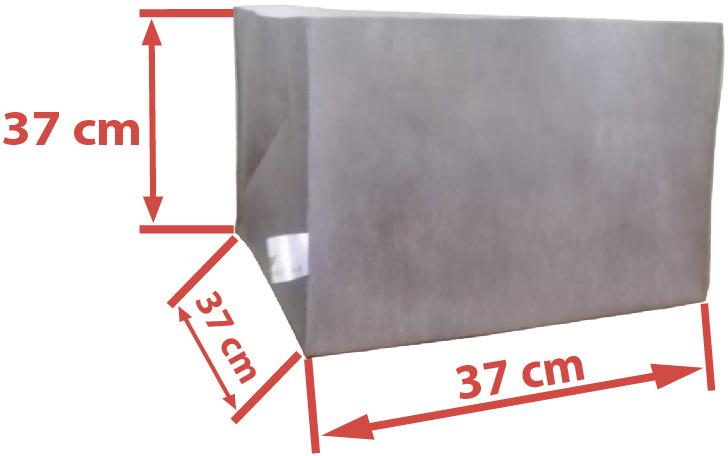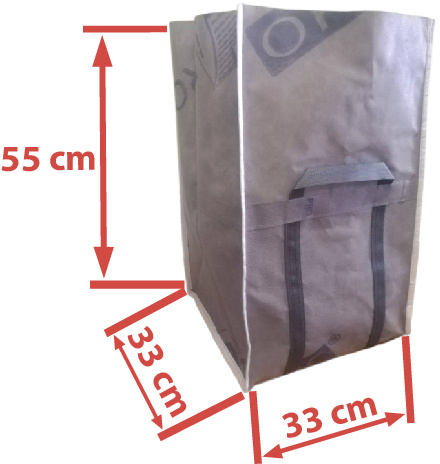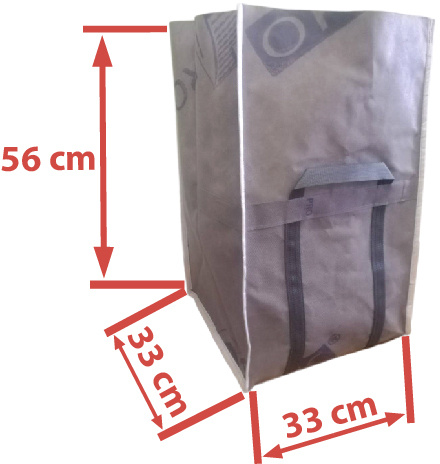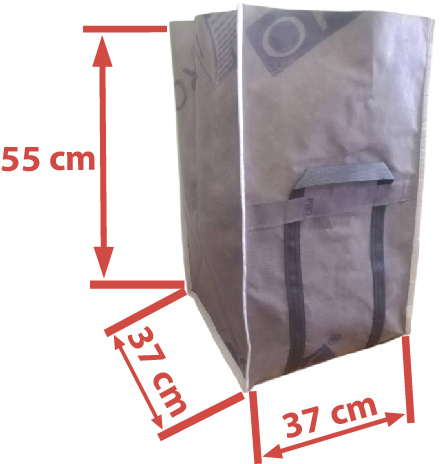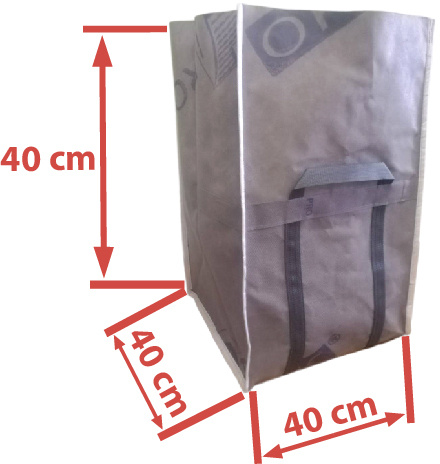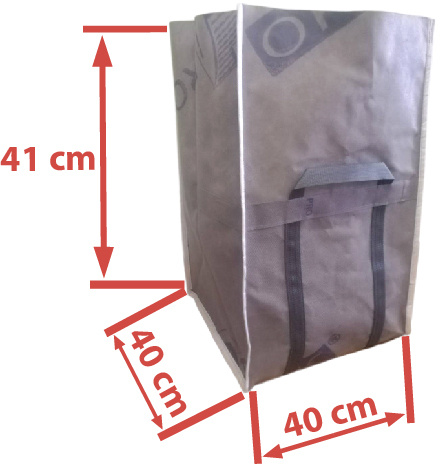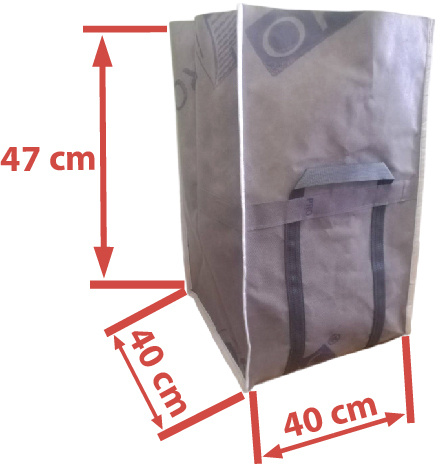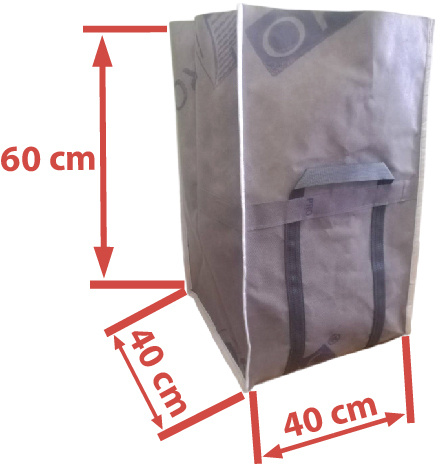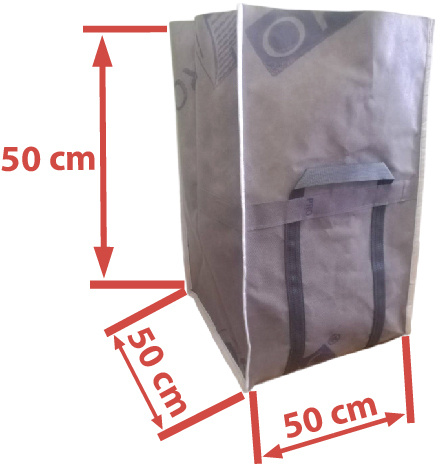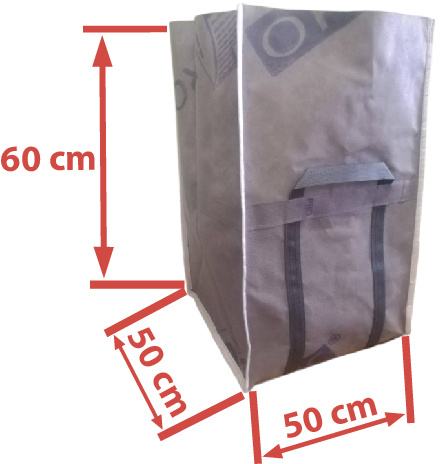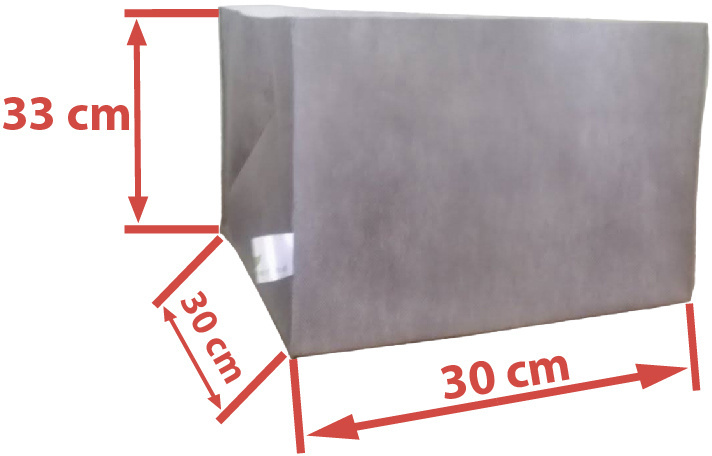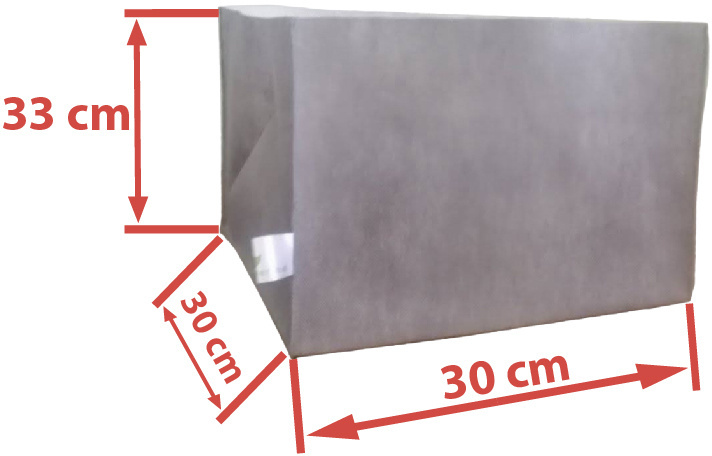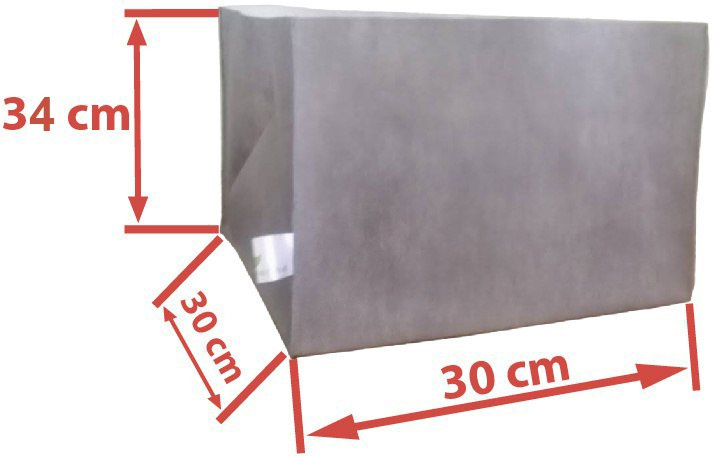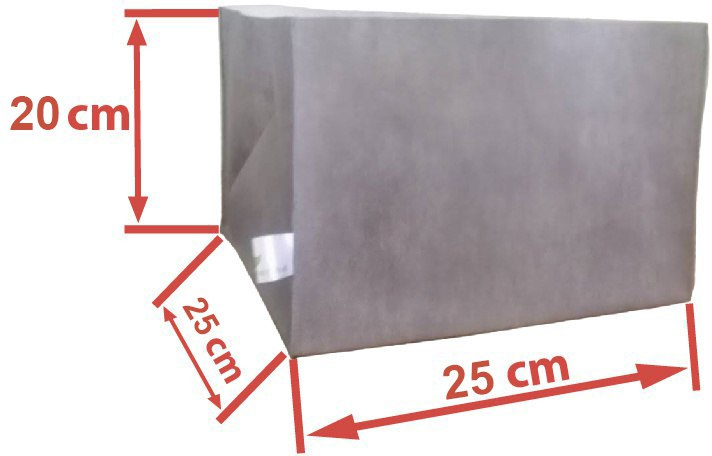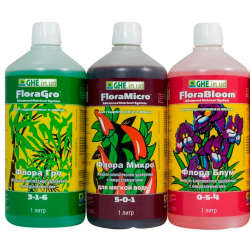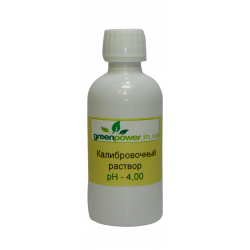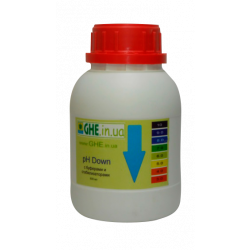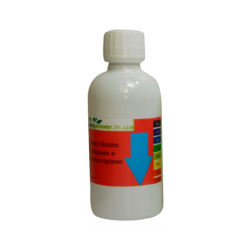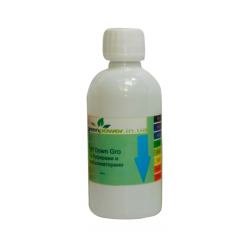Купить Горшок тканевой цветочный Growbag у производителя в Украине

Growbag from 5-150 liters
Product warranty 10 years.
Be sure to buy pots with drainage holes!
We produceRUBBER flower, breathable, fabric plant pots are durable. The jewelery of the seams will pleasantly surprise even the couturier. Green Power's pot sacks are square in shape. We do not sew from agrotextile - therefore we have dense walls that do not let water through. This contributes not to leakage from the sides, but to the uniform distribution of the nutrient solution to the very drainage holes (if the water escaped through the side walls, this is not right!). The walls allow air and steam to pass through (excessive warm stale air). Our pots have drainage holes with a diameter of 1.5 - 2 cm, and large pots for plants are specially reinforced - they are sewn with a strong ribbon.
How many pots do you need for a greenhouse?
What is the shape of the flower pot for the plant?
The volume of the fabric pot for plants is adjusted by tuckingedges (as if the edges on the shirt were twisted - rolled up). For example, if you turn the pot twice, its volume will correspondingly become half as much. Growbag is not just a replacement for a standard pot, but an innovative product that creates an optimal environment for the development of the root system, resulting in a huge canopy and a healthy plant in general - able to resist diseases and eliminate mold.
This "Smart Cloth Pot" is made of rubber, resistant to fungus and mold, resistant to physical impact, filtering UV rays, resistant to alkalis, acids, salt solutions.
There are a lot of advantages over conventional plastic pots. The plant grown in GrowBag will be strong and healthy,
will bring more large and juicyfruits. It has proven itself well as a pot for marijuana: for the street or indoors in grow boxes and greenhouses.
The most common problem for a novice gardener is the death of plants from waterlogging. The roots of the plant are flooded with water for a long time, they cannot breathe, the root gases have nowhere to go and the plant dies, slowly but surely. In our grow bag, this is simply not possible - breathable pots allow excess moisture to pass through the porous structure of the fabric.
The walls of the breathable plant pots "Smart Pots" do not let water through. They allow moisture to pass through, thus evaporating excess moisture. Then the plants do not dry out, but breathe. Pots have large full-fledged drainage holes, so there is always access to oxygen to the roots, and root gases quietly seep through the fabric of the pot.
And an interesting thing with fertilizers: their excess crystallizes outside the pot in the form of a plaque. By this factor, you can visually monitor the amount of fertilizer in the substrate.
The potty is convenient to store and can be washed for reuse.
You can buy a large flower pot from usor We sew flower pots of any size UNDER THE ORDER (both for system blocks and for onions).
And agro-textiles are not good - all the water pours out from the sides and the lower roots do not feed!
Our grow bags have a square shape and drainage holes, dense walls that do not let water through, but let air and steam through. This contributes not to leakage from the sides, but to an even distribution of the nutrient solution to the very drainage holes.
What to pay attention to!!!
These peppers were planted at the same time. One in a regular plastic potty and the other in our "smart" breathable potty.
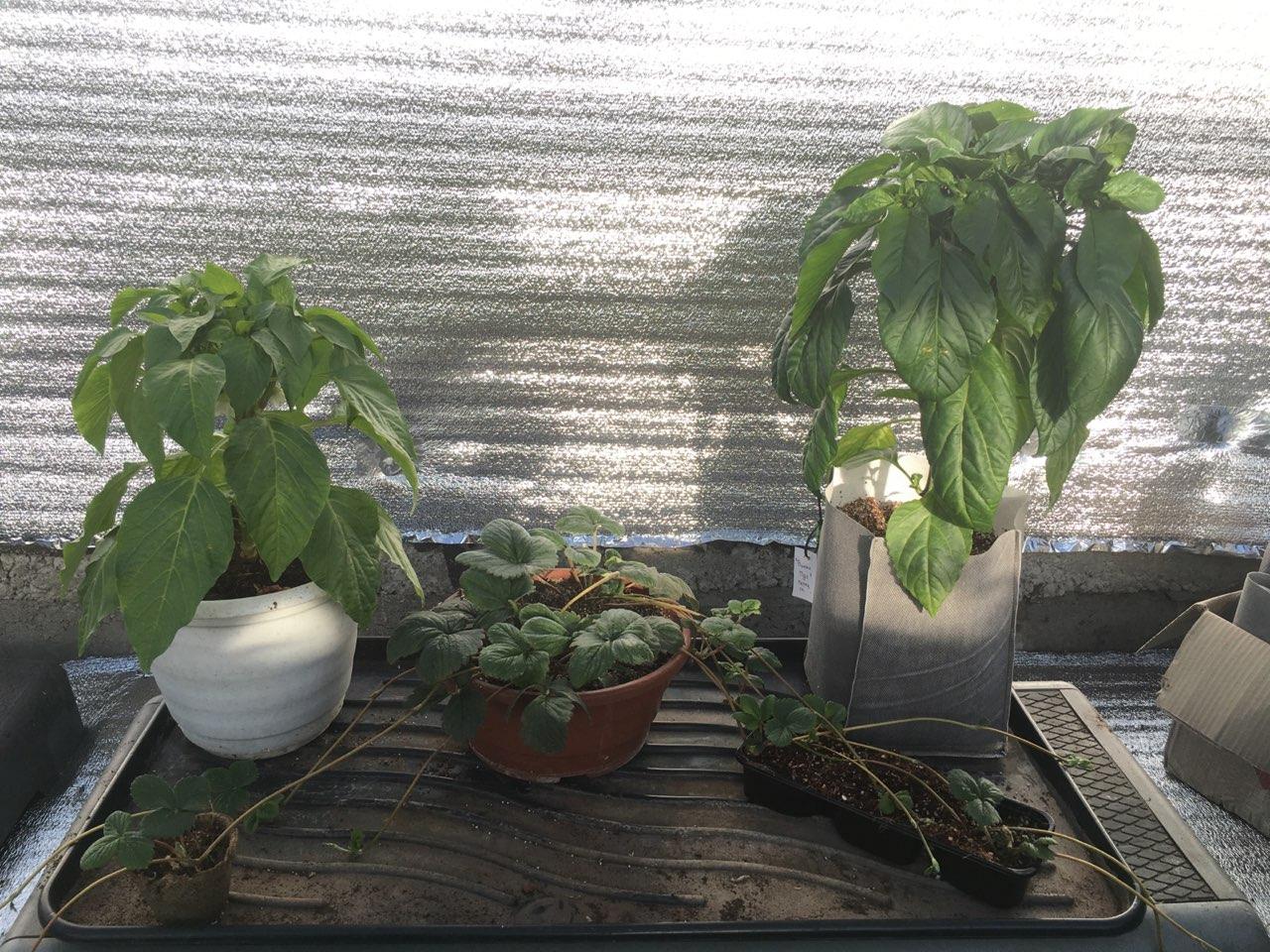
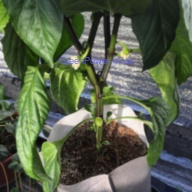
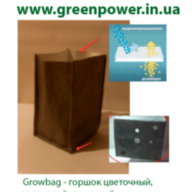
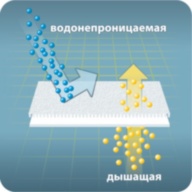
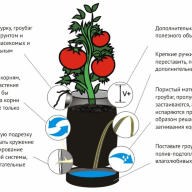
Получение информации из Youtube

|
||
HIGH pot size chart. And if you tuck the edges, then the volume of the pot will decrease significantly:
| If tucked up | |||||
| Pot dimensions in centimeters | to the specified height, then the following volume will be obtained | ||||
| bottom width | bottom length | Height | Volume in liters | Height cm | Volume in liters |
| fifteen | fifteen | 21 | 5 | ||
| 16 | 16 | 27 | 7 | ||
| twenty | twenty | 25 | ten | ||
| 18.5 | 18.5 | 36 | 12 | 21 | 7.2 |
| 21 | 21 | 35 | fifteen | 25 | Eleven |
| 25 | 25 | 33 | twenty | 25 | fifteen |
| 25 | 25 | 43 | 26 | 31 | 19 |
| thirty | thirty | 40 | 36 | ||
| thirty | thirty | fifty | 45 | 31 | 28 |
| 31 | 31 | 52 | fifty | ||
| 33 | 33 | 55 | 60 | 35 | 38 |
| 40 | 40 | 41 | 64 | ||
| 37 | 37 | 55 | 75 | 35 | 48 |
| 40 | 40 | 60 | 96 | 35 | 56 |
| fifty | fifty | fifty | 125 | ||
| fifty | fifty | 60 | 150 | 35 | 88 |
LOW wide pot size chart:
| Pot dimensions in centimeters | Volume | ||
| bottom width | bottom length | Height | in liters |
| 16 | 16 | twenty | 5 |
| 21 | 21 | 17 | 7 |
| 25 | 25 | 17 | ten |
| 25 | 25 | 25 | fifteen |
| 39 | thirty | 24 | twenty |
| thirty | thirty | thirty | 26 |
| 33 | 33 | 33 | 36 |
| 35 | 35 | 36.5 | 45 |
| 37 | 37 | 37 | fifty |
| 33 | 33 | 55 | 60 |
| 40 | 40 | 40 | 64 |
| 40 | 40 | 47 | 96 |
| fifty | fifty | fifty | 125 |
| fifty | fifty | 60 | 150 |
brand | Green Power |
Select Volume pot | 20 л |
Select the Size of the pot | ВЫСОКИЙ |
the manufacturer's website | www.GreenPower.in.ua |
Вес | 48.2 g |
brand | Green Power |
Select Volume pot | 5 l, 7 l, 10 l, 12 l, 15 l, 20 l, 26 l, 36 l, 45 l, 50 l, 60 l, 64 l, 75 l, 96 l, 125 l, 150l |
Select the Size of the pot | ВЫСОКИЙ, широкий |
the manufacturer's website | www.GreenPower.in.ua |

В течение жизни растение постоянно увеличивает размеры своих корней. При этом они углубляются в почву и разрастаются далеко в стороны от стебля. Корни свеклы, например, проникают в почву на глубину более 3 м, пшеницы — на 2-2,5 м, у огурцов корни разрастаются на 1,5-2 м в стороны от стебля, у лука — на 60-70 см. У взрослой яблони корни разрастаются в стороны на 10-12 м от ствола, а у осины — даже на 30 м.
Корни обладают неограниченной возможностью роста. Но в природе они редко реализуют такую возможность из-за различных причин: ветвления в почве корней других растений, недостаточности питательных веществ и т. д. В специально созданных условиях растение способно развить огромную массу корней. Например, у четырехмесячного растения озимой ржи, выращенного в теплицу, образовалась огромная корневая система. Общая длина всех ее корней составила 623 км, что равно расстоянию от Москвы до Санкт-Петербурга. Причем общая поверхность всех корней этого растения была в 130 раз больше поверхности наземных органов растения. Общий прирост всех корней только за одни сутки достигал 4,8 км, и ежесуточно на них образовывалось более 100 млн корневых волосков.
Опыты по изучению особенностей роста корней
Рост корня осуществляется путем деления (увеличения количества) и растяжения клеток, находящихся на верхушке (кончике) корня. Все корни растут верхушечной частью.
Обнаружить это можно с помощью следующего опыта. На корешок проростка фасоли или тыквы наносят черной тушью тонкие черточки-метки на одинаковом расстоянии друг от друга. Уже через день можно увидеть, что на участке, расположенном ближе к верхушке корня, расстояние между метками увеличилось, тогда как у основания корня оно не изменилось.
Если удалить верхушку, то рост корня в длину прекратится, но зато образуется много боковых корней. Эта особенность растений используется человеком при выращивании рассады культурных растений.
 Геотропизм у корней: 1 — растение; 2 — в перевернутом виде, спустя 4 дняКорни растут в течение всей жизни растения. Корень удлиняется и продвигается в почве в результате деления и растяжения клеток, образовавшихся на верхушке корня.
Геотропизм у корней: 1 — растение; 2 — в перевернутом виде, спустя 4 дняКорни растут в течение всей жизни растения. Корень удлиняется и продвигается в почве в результате деления и растяжения клеток, образовавшихся на верхушке корня.
Если рассмотреть корневой чехлик под микроскопом, то можно увидеть, что он образован из нескольких слоев клеток. Он защищает делящиеся клетки кончика корня от механических воздействий среды. Кроме того, клетки корневого чехлика выделяют слизь, которая действует как смазка, облегчая продвижение растущего корня в почве.
Рост корня обычно направлен вниз. Как бы ни положили прорастающее семя или укореняющийся побег — их корни обязательно будут направлены вниз. В этом выражается чувствительность растения к земному притяжению. Такое явление называют геотропизмом (от греч. гео - "земля" и тропос - "поворот", "направление").
Ориентацию корней вниз к земле можно продемонстрировать на опытах. Если растение с корнем, растущим вниз, посадить в перевернутом виде, то через некоторое время можно увидеть, что оно вновь направит свой корень вниз. Опыт можно повторить несколько раз, но результат будет тот же.
В почве корень, как правило, продвигается в сторону, где содержатся влага, минеральные вещества и кислород. Такое движение органов растения, в том числе и корня, в сторону нужных им химических веществ (кислород, вода, минеральные соли) называется хемотропизмом (от. греч. хемиа - "химия" и тропос - "поворот", "направление").
Корень растет на протяжении всей жизни растения. Он обычно растет вниз, но способен поворачиваться в направлении нужных ему веществ. Корень растет верхушечной частью, защищенной корневым чехликом.
 Cleaning agent for smoking accessories$6.10
Cleaning agent for smoking accessories$6.10 Set for watering plants in a grow box + pump$29.54$29.59
Set for watering plants in a grow box + pump$29.54$29.59 Сульфат магния 25 % (распродажа)$3.29
Сульфат магния 25 % (распродажа)$3.29































